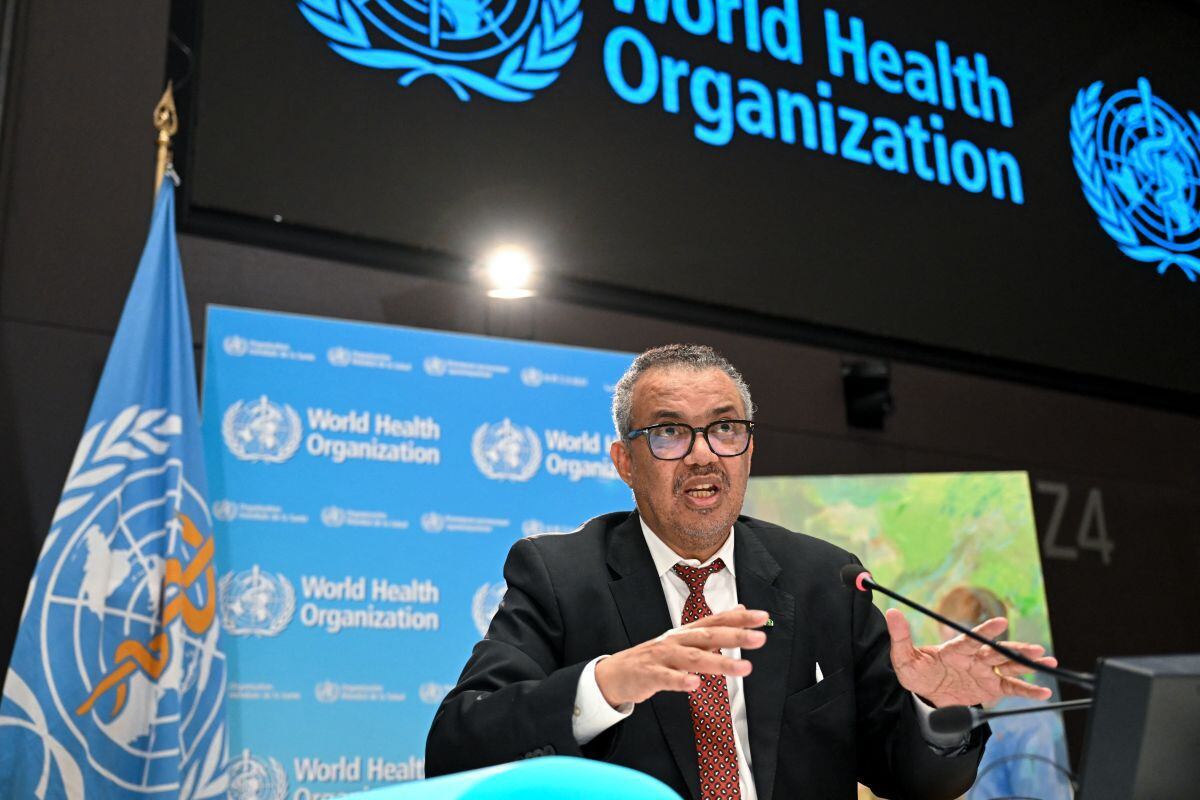
World Health Organization (WHO) inaugurated today its annual assembly, which commemorates 75 years of existence and important progress in public health, and during which it will seek that the States guarantee more stable financing to carry out its work and that they support a new international treaty so that the world better cope with future pandemics.
“Like the framework treaty for tobacco control, the treaty on pandemics that the Member States are negotiating must be a historic agreement that marks a paradigm shift in health security”said the director general of the WHO, Tedros Adhanom Ghebreyesus.
The treaty that includes all tobacco control measures is the only legal instrument negotiated at the WHO and currently legally binds 182 countries.
The WHO hopes that the treaty on pandemics, which seeks to remedy the biggest deficiencies that have been observed in the fight against COVID-19, will become the second such agreement within a year, since the intention is to be approved at the 2024 WHO assembly.
The assembly inaugurated today is attended by ministers and health officials from practically all of its 194 member states, at a time when the organization wants measures to be approved that will allow it to deal with a growing number of health crises in different parts of the world, aggravated by armed conflicts and the impact of climate change.
In his inaugural address, Tedros mentioned the biggest milestones in the history of the WHO, such as the eradication of measles and how close it is to achieving the same with polio and guinea worm, a crippling parasitic disease, and related to that, the extraordinary expansion of vaccination.
Currently there are thirty diseases that can be prevented by vaccines, among which thirteen are considered essential in national immunization programs. Recently, vaccines against Ebola and malaria have been approved.
Tedros also referred to the increase in life expectancy (from 43 to 73 years since the WHO was founded, with the greatest progression in the poorest countries), the reduction in maternal and child mortality and the advances in control of the HIV and tuberculosis epidemics.
“It is hard to imagine that the world would have experienced the same improvements if the WHO did not exist,” held.
The director general of the WHO said that a pandemic -but one that the public does not identify as such- is smoking, whose causal relationship with lung cancer was scientifically proven in 1952, despite which the prevalence of smokers has increased since so.
In addressing this situation, he recalled the conduct of tobacco companies“who infiltrated the WHO”, forcing the organization’s collaborators “to begin to verify if they had been the object of wiretapping,” he commented, referring to events that occurred around 1999, but which reveal that the organization’s work can collide with corporate interests.
As pending tasks in the short term, Tedros mentioned containing the increase in chronic diseases, which are responsible for 70% of deaths in the world; of obesity, as well as the improvement of mental health services, which COVID-19 made clear that they are the weakest part of health systems.
On the occasion of its annual assembly, which will last until the 30th, the WHO announced the creation of an international surveillance network to detect new infectious diseases that could threaten international public health in time and to share information about them.
The organization said that for this purpose it will make available a platform to which countries from all regions can have access to track pathogens and share information, including samples of infectious agents.
Source: EFE
Source: Gestion
Ricardo is a renowned author and journalist, known for his exceptional writing on top-news stories. He currently works as a writer at the 247 News Agency, where he is known for his ability to deliver breaking news and insightful analysis on the most pressing issues of the day.











